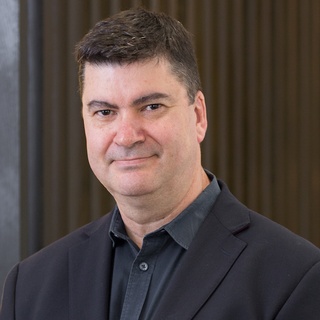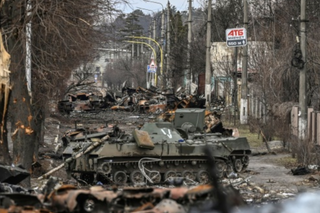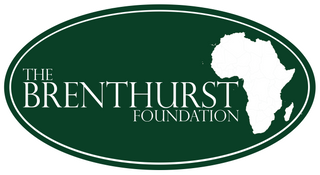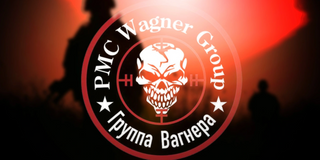News
Dead Ideology Fights Back – But Ad Hominem Attacks Won’t Make SA’s Foreign Policy Rational, or Right
The real matters which must be addressed when it comes to South Africa’s foreign policy will not go away because of ad hominem attacks on those who point them out.

Director, The Brenthurst Foundation

Research Director, The Brenthurst Foundation


The British politician Denis Healey once noted that an attack mounted by his rival Geoffrey Howe was like “being savaged by a dead sheep”. That was more or less the sensation produced by the latest ruling party attempt to explain the dire decision to favour Russia following its invasion of Ukraine.
What was disappointing about the article “The Russia-Ukraine war has exposed how many nations have different agendas to satisfy”, published by News24, was the absence of a serious attempt to deal with the core issues.
Instead, the author, Welile Nhlapo, a former SA ambassador to the US, opted for character assassination, claiming, “Usually one would prefer to tackle arguments on the foreign policy positions head on and not interrogate what or who lies behind those arguments and dissect what agendas are at play.”
Nhlapo then attempts to smear those who disagree with the government’s failed foreign policy on Ukraine, saying: “The Brenthurst Foundation’s website is the repository of the slew of negative opinion pieces published by Mills and Hartley”, apparently because the authors are doing Nato’s bidding.
Nhlapo’s arguments are not much different from those of the ersatz socialist and political journeyman Phillip Dexter, who recently “revealed” that Mills had the temerity to request an interview with the Ukrainian defence minister.
Nhlapo “reveals” — presumably after reading the foundation’s website where this information is publicly available — that The Brenthurst Foundation’s board includes Nick Carter, the former chief of the UK defence; and others who have committed the cardinal sin of serving in the militaries of democratic nations.
Strangely, although the name is first on the list of board members, Nhlapo failed to mention that the foundation’s chairman is Olusegun Obasanjo, the former president of Nigeria. Or that the former Liberian president Ellen Johnson Sirleaf is a board member along with a former prime minister of Ethiopia, Hailemariam Desalegn. When the facts don’t support Nhlapo’s conspiracy theory, he simply ignores them.
It is inconceivable to the likes of Nhlapo, Dexter and their ilk that there is a rational argument against South Africa’s failed foreign policy.
These sorts of personal attacks are in poor taste. Especially when they come from someone of such dubious political lineage. The high point of Nhlapo’s career was his service as then president Jacob Zuma’s national security adviser from 2010 to 2011.
The timing is important, for it was in March 2011 that South Africa voted in favour of UN Security Council Resolution 1973 which supported Nato’s intervention in Libya. It is reasonable to suppose that a “national security adviser” was consulted on this vote.
The real matters which must be addressed when it comes to South Africa’s foreign policy will not go away because of ad hominem attacks on those who point them out.
These are, to sum them up:
- South Africa’s decision to align itself with undemocratic authoritarians rather than with sovereign democracies such as Ukraine. This lack of support for democracy and human rights stands in stark contrast with our Constitution, which places South Africa among democratic nations.
- South Africa’s lack of support for international law. The failure to support UN resolutions which have condemned Russia’s invasion has been shameful.
- South Africa’s dubious dealings with Russia. The failure to clearly explain what was loaded on and unloaded from the Lady R, as well as the purpose of a Russian cargo flight to a military airport, has raised questions about our military relationship with a belligerent power. The fact that an investigation into this is taking place behind closed doors does not inspire confidence.
- The hypocrisy of hiding behind “non-alignment” when South Africa is now closely aligned with a belligerent power.
Nhlapo argues, “We are proud that we are not dictated to by any foreign power. As any country, we have friends and partners, but we have never allowed any of them to dictate our foreign policy.” Well, it certainly doesn’t look like that. The series of friendly visits, the obsequious grinning and posing with Russian Foreign Minister Sergey Lavrov, send a different signal.
Finally, Nhlapo, for some reason, includes the paragraph:
“We are all fortunate that we live in a country that allows for the free exchange of ideas and opinions without retribution. South Africa is ranked 25 out of 180 countries on the World Press Freedom Index, something we should always cherish and protect.”
This is a wonderful sentiment. If it weren’t for the government’s efforts to establish media tribunals and to regulate the press via security regulation, we might be better than 25th. Or perhaps this is intended in a more sinister vein for the messengers and critics of government failure?
It’s curious, too, that the government and its lackeys, including in academia, have recently gone on the offensive in defending this indefensible foreign policy line, in seminars, webinars and such articles. Perhaps the ANC has been shaken by the threat posed by Washington’s response to the Lady R, particularly in regard to the Agoa trade agreement.
Perhaps the party realises it’s on the wrong side of history, but a combination of pride and Moscow’s benevolence does not permit public admission of this poor choice. The alternative — that the ANC actually believes Moscow is correct and the West is wrong — would establish a new low, and a threat to our democracy and our economy.
Sir Geoffrey Howe, the original political dead sheep, proved at the end to be something of a lion. In his resignation address to the House of Commons in November 1990, in a moment of exquisite political timing, he effectively dispatched his boss, Margaret Thatcher, who herself resigned nine days later.
If Nhlapo wants to be a lion, rather than penning ad hominem attacks which read as if they were written by a committee of indignant 13-year-olds, he should start by admitting the government’s mistakes.
This article originally appeared on the Daily Maverick
Photo:https://www.rbc.ua/ukr/news/voyna-kieve-oblasti-7-znakovyh-snimkah-mesta-1650911967.html


